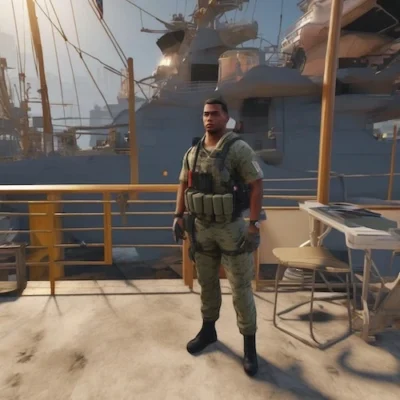Court-Martial Defense Purpose: Your Authoritative Guide to Protecting Your Military Career and Future
For any service member, the notification of a potential court-martial is a seismic event. It represents not just an accusation, but a direct threat to everything one has built: a military career, hard-earned benefits, reputation, and even freedom. In such moments of profound uncertainty, understanding the purpose of court-martial defense becomes paramount. It is not merely about responding to charges; it is about a multi-faceted, strategic fight for your entire future.
Unlike civilian criminal proceedings, military justice operates under its own unique code – the Uniform Code of Military Justice (UCMJ) – with distinct procedures, rules of evidence, and a hierarchy that can feel overwhelmingly stacked against the accused. This complexity means that effective defense demands specialized knowledge, relentless advocacy, and an unwavering commitment to protecting the service member’s rights at every turn. This authoritative guide will delineate the comprehensive purpose of court-martial defense, from the earliest stages of investigation to potential post-conviction appeals. At Gonzalez & Waddington, we define our purpose by securing justice for those who serve, ensuring their rights are protected with an aggressive, battle-tested defense.
I. Understanding the Threat: What a Court-Martial Represents
Before delving into the purpose of defense, it is essential to grasp the gravity of what a court-martial signifies. It is the military’s most formal and severe criminal proceeding, designed to try service members for violations of the UCMJ.
A. The UCMJ and its Scope: The Law of the Land for Service Members
The UCMJ is a comprehensive federal law that applies to all members of the U U.S. Armed Forces, regardless of their location. It defines a vast array of criminal offenses, from purely military crimes (like AWOL) to offenses that mirror civilian felonies (like sexual assault or larceny). Its strict application is fundamental to maintaining discipline, order, and readiness within the ranks.
B. Common Offenses Leading to Court-Martial
While the UCMJ covers many infractions, certain offenses are more frequently prosecuted in courts-martial due to their severity or impact on good order and discipline:
- Drug Offenses (Article 112a): Wrongful use, possession, introduction, or distribution of controlled substances.
- Sexual Assault & Related Offenses (Article 120): Rape, sexual assault, abusive sexual contact.
- Larceny & Fraud (Article 121, 132): Theft, embezzlement, wrongful appropriation, and various forms of fraud against the government.
- Absence Without Leave (AWOL) & Desertion (Article 86): Unauthorized absences, particularly those with intent to remain away permanently or avoid hazardous duty.
- Failure to Obey Order or Regulation (Article 92): Disobeying lawful orders or general regulations.
- Assault (Article 128): Physical violence against another person.
- Conduct Unbecoming an Officer (Article 133): For officers, conduct that dishonors or discredits the officer profession.
- General Article (Article 134): A broad “catch-all” for conduct prejudicial to good order and discipline or service-discrediting (e.g., adultery, communicating a threat, reckless endangerment).
C. The Stakes Involved: Beyond a Mere Conviction
A court-martial carries severe, immediate, and long-term consequences that far exceed those of an administrative action:
- Immediate Penalties: Confinement (imprisonment), forfeiture of pay and allowances, reduction in rank.
- Punitive Discharge: The most damaging consequence – a Bad-Conduct Discharge (BCD) or Dishonorable Discharge (DD) for enlisted, or Dismissal for officers. These are federal criminal convictions.
- Loss of Military Career & Retirement: A punitive discharge effectively ends a military career and results in the loss of eligibility for military retirement pay and benefits.
- Loss of VA Benefits: Punitive discharges (BCD/DD) typically result in the loss of virtually all Veterans Affairs (VA) benefits, including the GI Bill, healthcare, disability compensation, and home loans.
- Federal Criminal Record: A Special or General Court-Martial conviction results in a federal criminal record, which can impact civilian employment, housing, and professional licensing.
- Security Clearance Revocation: A conviction almost certainly leads to the denial or revocation of security clearances, ending careers in sensitive government or contractor roles.
- Sex Offender Registration (SORNA): Convictions for many sexual offenses trigger mandatory registration under federal and state sex offender registration laws.
- Social Stigma: The lasting damage to one’s reputation and social standing.
II. The Purpose of Defense at Each Stage of the Military Justice Process
Effective court-martial defense is a dynamic and relentless pursuit that begins the moment a service member comes under suspicion. The purpose of defense evolves with each stage of the process, but the overarching goal remains the same: to protect the service member’s rights, secure justice, and achieve the best possible outcome.
A. Purpose During Investigation (Pre-Charge): Control the Narrative, Protect Your Rights
This is often the most critical stage, yet the most overlooked. The purpose of defense here is proactive and preventative:
- Protecting Rights: The paramount purpose is to ensure the service member’s constitutional rights, particularly those under Article 31b UCMJ (the military’s Miranda warning), are fully understood and invoked. This means exercising the right to remain silent and demanding legal counsel before answering any questions from military law enforcement (CID, NCIS, OSI, CGIS) or the chain of command.
- Preventing Self-Incrimination: By invoking the right to silence, the defense’s purpose is to prevent the service member from inadvertently providing evidence or making statements that could be used against them.
- Preventing Evidence Collection: Advising against consenting to searches of person, property, or digital devices, thereby limiting the government’s ability to gather incriminating evidence without proper authorization.
- Controlling the Narrative: Early intervention allows defense counsel to gather facts, identify potential witnesses, and present a more favorable narrative to the investigative agencies and command, potentially influencing the scope of the investigation or even preventing charges from being preferred.
B. Purpose During Preferral & Referral (Pre-Trial): Divert or Mitigate
Once charges are preferred, the purpose of defense shifts to influencing the Convening Authority’s decision on how to dispose of the case:
- Avoiding Court-Martial Entirely: A key purpose is to persuade the Convening Authority to resolve the matter through a less severe administrative action, such as Non-Judicial Punishment (NJP/Article 15), or an administrative separation in lieu of court-martial. This requires presenting a compelling package of mitigation and evidence of rehabilitation.
- Influencing Court-Martial Type: If court-martial is inevitable, the purpose is to advocate for a less severe court-martial, e.g., a Special Court-Martial instead of a General Court-Martial, thereby limiting the maximum potential punishment.
- Challenging Legal Sufficiency: Reviewing the charges for legal deficiencies or lack of factual basis, with the purpose of having them dismissed or reduced.
C. Purpose During Article 32 Hearing (General Court-Martial): Discovery and Challenge
For serious General Courts-Martial, the Article 32 hearing is a crucial pre-trial proceeding with a dual purpose:
- Discovery: This is the primary purpose. The defense gains invaluable insight into the government’s case by cross-examining prosecution witnesses, examining evidence, and hearing the prosecution’s theory of the case. This intelligence is vital for preparing a robust trial defense.
- Challenging Probable Cause: The defense aims to demonstrate to the Preliminary Hearing Officer (PHO) that there is insufficient probable cause to believe an offense was committed or that the accused committed it, with the purpose of recommending dismissal or modification of charges to the Convening Authority.
- Preserving Testimony: Capturing sworn testimony from witnesses who may become unavailable later, or locking them into their statements to prevent changes at trial.
D. Purpose During Pre-Trial Motions: Striking at the Foundation
Before the actual trial, defense counsel files motions with the military judge. The purpose of these motions is to decisively shape the upcoming trial:
- Suppressing Damaging Evidence: A critical purpose is to exclude illegally obtained evidence (e.g., confessions obtained in violation of Article 31b, evidence from unlawful searches) from being used against the accused at trial.
- Dismissing Charges: Motions can aim to dismiss charges outright due to procedural errors, lack of jurisdiction, violations of due process, or unlawful command influence (UCI).
- Clarifying Legal Issues: Seeking favorable rulings on complex legal questions that will impact the trial.
E. Purpose During Trial (Findings Phase): Achieving Acquittal
This is the core of the court-martial, where the ultimate purpose of defense is to secure an acquittal or a finding of not guilty:
- Creating Reasonable Doubt: The paramount purpose is to demonstrate that the prosecution has failed to prove every element of the alleged offense “beyond a reasonable doubt.” This is achieved by challenging evidence, cross-examining witnesses, and presenting alternative theories.
- Controlling the Narrative: Presenting a coherent, compelling, and persuasive defense case that highlights the service member’s innocence or mitigates their culpability.
- Protecting the Record for Appeal: Meticulously ensuring that all due process rights are honored and legal procedures are followed, laying the groundwork for a potential appeal if necessary.
F. Purpose During Sentencing Phase (if convicted): Mitigating the Harm
If a conviction occurs, the purpose of defense immediately shifts to mitigating the punishment and protecting the service member’s future:
- Mitigating Punishment: Presenting a compelling case for the lightest possible sentence, arguing against punitive discharges and lengthy confinement. This involves introducing powerful evidence in “extenuation and mitigation” (e.g., exemplary service, character statements, rehabilitation efforts, underlying mental health conditions).
- Avoiding Punitive Discharge: A central purpose is to fight fiercely against a Bad-Conduct or Dishonorable Discharge, as these carry the most devastating long-term consequences.
- Preserving Benefits: Arguing for sentencing outcomes that maintain eligibility for VA benefits, even if a discharge is unavoidable.
III. Beyond the Verdict: The Enduring Purpose of Defense Post-Trial
Even after the court-martial concludes, the purpose of defense continues. The fight for justice, career, and future can extend into the appellate and administrative realms.
A. Clemency: A Final Plea to the Convening Authority
After a conviction, defense counsel can submit a clemency package to the Convening Authority. The purpose here is to persuade the Convening Authority to reduce the findings (guilty verdicts) or the sentence, or even set aside the conviction entirely. This is a discretionary power that can offer a final opportunity for relief outside of the formal appeals process.
B. Appeals: Challenging Errors and Injustices
For convictions with significant sentences, automatic review occurs at the service’s Court of Criminal Appeals (AFCCA, ARMYCCA, NMCCA, CGCCA). Further appeals can be made to the U.S. Court of Appeals for the Armed Forces (CAAF), and in rare instances, to the U.S. Supreme Court. The purpose of defense during appeals is to identify and argue legal errors, factual insufficiency, or excessive sentences, with the ultimate goal of overturning a wrongful conviction or reducing an unjust punishment.
C. Discharge Upgrades / Corrections Boards (DRBs/BCMRs): Restoring Future
For service members who receive a punitive discharge, the purpose of defense often extends to challenging that discharge administratively, even years later. Applying to the Discharge Review Boards (DRBs) or Boards for Correction of Military Records (BCMRs) aims to upgrade an undesirable discharge (e.g., from Bad-Conduct or Dishonorable to Honorable), with the critical purpose of restoring lost VA benefits, improving civilian employment prospects, and mitigating the social stigma.
D. Preserving Civilian Opportunities: Mitigating Long-Term Impact
The purpose of defense also encompasses proactively mitigating the long-term impact of a court-martial conviction on a service member’s civilian life. This includes advising on federal criminal record implications, security clearance adjudication, and navigating challenges in employment, professional licensing, and housing. For sexual offense convictions, ensuring compliance with Sex Offender Registration and Notification Act (SORNA) requirements while exploring any potential avenues for relief is also a critical purpose.
IV. The Indispensable Role of Expert Military Defense Counsel
The intricate complexities and severe consequences of a court-martial underscore the absolute necessity of expert legal representation. Relying solely on detailed military counsel, while valuable, may not always provide the comprehensive, independent, and aggressive defense required for such high stakes. This is where Gonzalez & Waddington stands as your indispensable ally.
A. Unparalleled Understanding of the Military Justice System
Our attorneys possess a profound and specialized understanding of the UCMJ, the Manual for Courts-Martial (MCM), Military Rules of Evidence (MRE), and the unique customs and practices of military justice across all branches. This expertise allows us to navigate the system with precision, identify critical legal nuances, and anticipate prosecutorial strategies that less experienced counsel might miss.
B. Absolute Independence from the Chain of Command
Perhaps the most compelling advantage of retaining civilian counsel like Gonzalez & Waddington is our complete independence. We are not bound by military career considerations or the chain of command. Our sole loyalty is to you, the client. This independence empowers us to aggressively challenge military authorities, confront commanders, and pursue every viable defense strategy without fear of reprisal, ensuring that your rights are fiercely protected.
C. Aggressive, Battle-Tested Trial Lawyers
A court-martial is a criminal trial, and it demands formidable trial lawyers. Our attorneys are not just legal scholars; they are battle-tested litigators with extensive courtroom experience in military proceedings worldwide. We are adept at rigorous cross-examination, persuasive oral arguments, challenging forensic evidence, and making real-time tactical decisions that can turn the tide of a case. We bring a zealous, results-oriented approach to every defense.
D. Comprehensive, Proactive Defense from Start to Finish
Our commitment to your defense begins the moment you become aware of an investigation and extends through every conceivable stage: from initial questioning and pre-trial motions to the court-martial trial, sentencing, and, if necessary, the appellate process and discharge upgrades. We provide proactive counsel, strategic guidance, and unwavering advocacy, ensuring that no stone is left unturned in safeguarding your future.
E. Protecting Your Entire Future—Not Just the Sentence
At Gonzalez & Waddington, our purpose extends beyond merely mitigating a sentence. We are dedicated to protecting your entire future: your military career, your hard-earned benefits, your security clearance, and your civilian employment opportunities. We understand the collateral consequences of a court-martial conviction and build a defense strategy designed to minimize these long-term impacts, fighting for the best possible outcome in every aspect of your life.
V. Conclusion: A Purpose-Driven Defense for Your Life
Facing a court-martial is a defining moment, challenging your freedom, your honor, and your future. The purpose of court-martial defense is a multi-faceted mission: to protect your fundamental rights, rigorously challenge every element of the government’s case, secure an acquittal whenever possible, mitigate potential penalties, and relentlessly fight to preserve your military career, benefits, and civilian opportunities.
The complexities of the UCMJ, the high burden of proof, and the severe consequences demand a defense team that is not only knowledgeable but also independent, aggressive, and committed to your individual circumstances. Never attempt to navigate this daunting process alone. Your future is too important to leave to chance.
Your freedom, career, and future are on the line. Do not face a court-martial without an aggressive defense.
Contact Gonzalez & Waddington immediately for a confidential consultation.
Call Now: 1-800-921-8607
References
- Uniform Code of Military Justice (UCMJ) – U.S. House of Representatives
- Defense Services FAQs – Navy JAG Corps (Covers service member rights during process)
- Discharge Upgrade Instructions | Veterans Affairs (For impact on benefits and post-trial remedies)
- Army Criminal Investigation Division (CID)
- Naval Criminal Investigative Service (NCIS)
- Air Force Office of Special Investigations (OSI)
- Coast Guard Investigative Service (CGIS)
Court-Martial Defense
How to Survive—and Win—When Facing the Military Justice System
What Is a Court-Martial?
A court-martial is a military criminal trial. It’s how the U.S. military prosecutes service members accused of violating the UCMJ. There are three types of courts-martial: summary, special, and general—each with different procedures, stakes, and consequences.
Types of Court-Martial
- Summary Court-Martial: For minor offenses, handled by a single officer. Limited punishment options.
- Special Court-Martial: Similar to a misdemeanor trial. Tried before a military judge or panel of members.
- General Court-Martial: Reserved for felony-level cases. Includes Article 32 hearing beforehand. Maximum penalties, including confinement and dishonorable discharge.
The Court-Martial Process
- Investigation (CID, NCIS, OSI)
- Preferral of Charges
- Article 32 Preliminary Hearing (for General CM)
- Referral to Court-Martial
- Trial (motions, voir dire, evidence, testimony)
- Findings & Sentencing
- Post-Trial Appeal
Your Rights at Court-Martial
- Presumption of innocence
- Right to remain silent (Article 31b)
- Right to an attorney (JAG or civilian)
- Right to present evidence and call witnesses
- Right to trial by panel (jury) or judge alone
Defense Strategy Tips
- Secure experienced civilian defense counsel early
- Gather witness names, texts, emails, and social media evidence
- Challenge biased investigations and command pressure
- Understand how the military selects panel members
- Never assume JAG will build an aggressive defense on your behalf
Linked UCMJ Offense Pages
FAQ – People Also Ask
Can I be sent to prison after a court-martial?
Yes. If convicted at a special or general court-martial, you may be sentenced to confinement, discharge, and other penalties.
Do I need a civilian lawyer if I already have a JAG?
Yes, especially for serious cases. Civilian lawyers often provide more time, experience, and strategic flexibility than overworked JAGs.
What if I’m innocent?
Then you fight like hell. You build a strong, credible defense and dismantle the prosecution’s case piece by piece. That starts with strategy, evidence, and expert guidance.
Related Posts
- How to Defend Against False Sexual Assault Allegations Under Article 120 UCMJ court martial attorneys
- Cavalier Space Force Station Military Defense Lawyers
- Video: NAS Orlando Military Defense Lawyers – Florida Court Martial Attorneys – Article 120 UCMJ Law Firm
- Landstuhl Military Defense Lawyers – Germany Court Martial Attorneys



